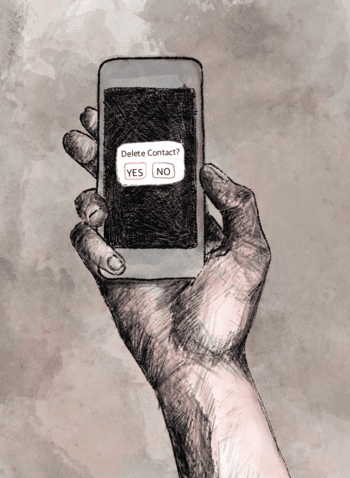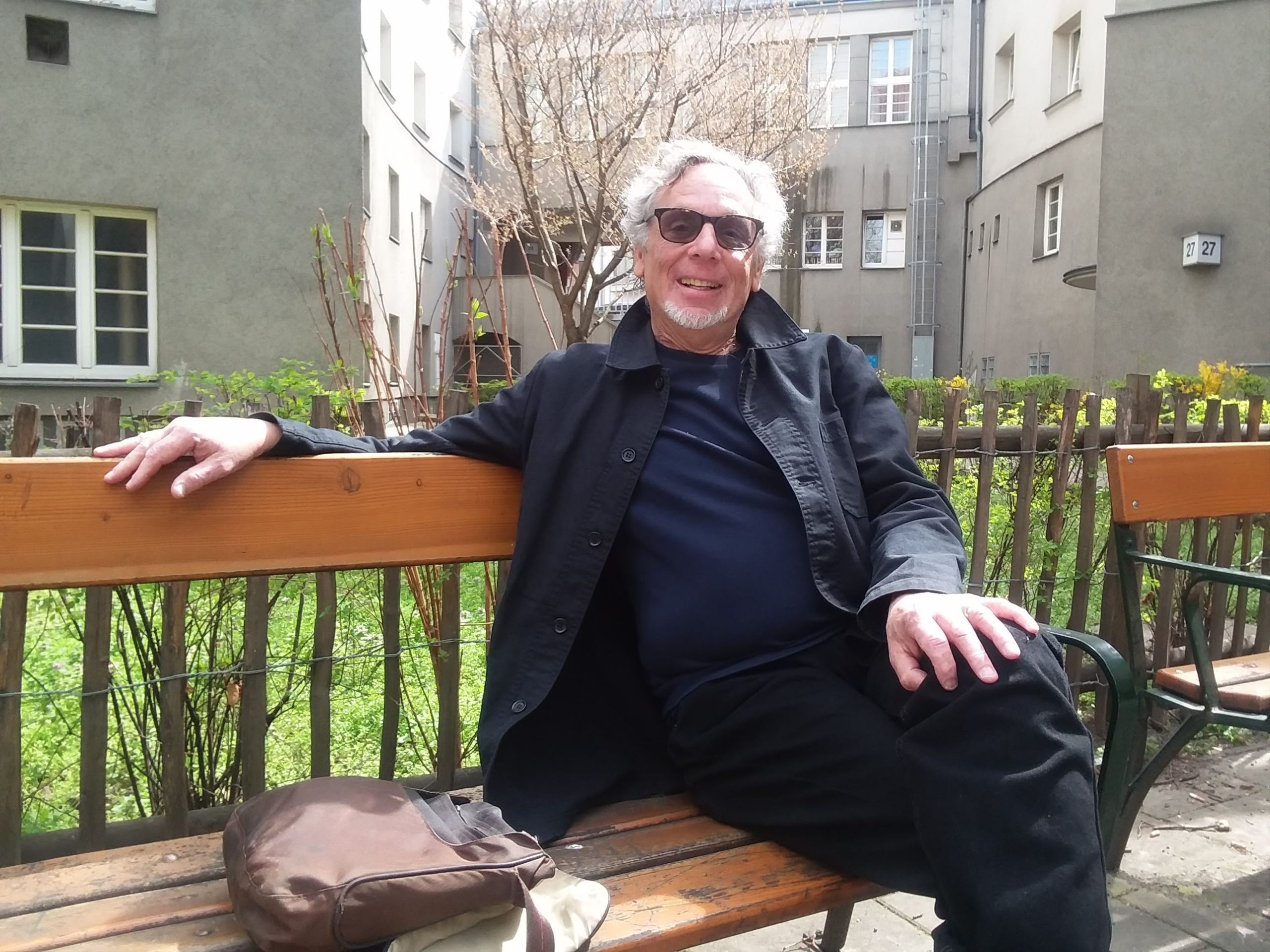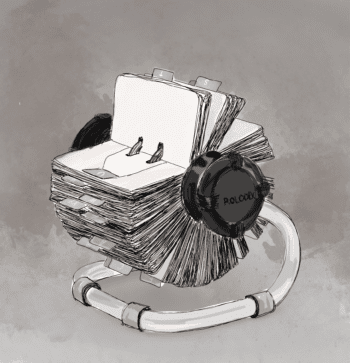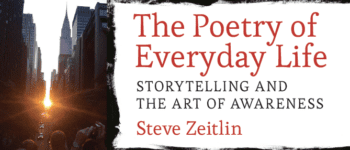Guest Blog by Mitch Abidor
Poetry of Everyday Life Blogpost #24
Produced in collaboration with Voices: Journal of New York Folklore
Intro
Social media washes over us and all we can do is keep swimming. Occasionally, a great hunk comes floating along like a tree trunk that you can hold on to for dear life. Struck by a piece that pushes back against the finality of death, I held on to this essay written by Mitch Abidor like a bulk of solidity in the whirling waters of social media. I’m happy to send it down the river to you. Mitch Abidor, the author, has published over a dozen books. His translation of Jean Jaurès’s A Socialist History of the French Revolution has just been reissued in paperback. He first posted the piece through the group Alte-Growing Old Together.
The Dead Among My Phone Contacts

My phone is filling up with the dead.
My friend Michael died last week, barely two months after being diagnosed with cancer. To him, as to my other dead, I owe a debt of memory. Part of this debt is that it is utterly inconceivable for me ever to delete him from the contacts on my cell. I could never add the indignity of deletion to the greater one of death. Practically speaking, it’s utterly meaningless to keep Michael, to keep Carl, to keep my sister Stephanie or my other friend Michael among the numbers I might need to call one day. But hitting “delete” next to their names would be too stark a reminder that they’re gone forever. Their true existence, their only existence, is now in memory. Even so, erasing them from my phone is a step too far.
There is another category, though: those who, while living, are dead to me. We all have names among our contacts that are of no use to us any longer — an awning installer, the guy who cleared blocked pipes . . . But what of those who were once close to us, even dear to us, with whom we had a falling out, or lost touch, or for whatever reason we’ll unlikely ever see or speak to again? Do we sentence them to death by deletion? Do we consign them to a place perhaps worse than that of those who have actually died?

As I went through my contacts last week, some names were easy to disappear: fellow students in the Latin class I took a few years ago, for example. For purely egotistical reasons I couldn’t delete a Brazilian filmmaker who’d been nominated for an Oscar with whom I’d once had lunch. How many people I know have Academy Award nominees among their contacts? So Petra stayed. But what of the friends who turned their backs on me when I wrote an article that they considered a betrayal of friendship when I attacked a book one of them had written? I’ll never call them and they’ll never call me. When we pass each other at events, we turn our heads from each other. Am I ready to draw a line under their existences? It’s a tough call, but my former affection prohibits me from wiping them out. That day will come, but it hasn’t come yet.
For those literally dead and those figuratively so, it is as if our memory of them were inextricably linked to the sight of their names, marking them as people we can speak to whenever we have the urge. We can almost free ourselves of their memory, and of our disappointment in them, by deleting them from our contacts; doing so is a concrete act that expresses this. Not deleting the dead, though, is part of our battle to hold on to those we once loved.
Jorge Luis Borges’s most beautiful work — in fact, the single most beautiful work on death ever written — is a short story just three paragraphs long: “The Witness.” It begins with the image of an old man dying alone, an old man who, it turns out, was the person to have witnessed pagan rituals in England. It is a story about the fate of the memories that only we possess. Borges write: Things, events, that occupy space yet come to an end when someone dies may make us stop in wonder — and yet one thing, or an infinite number of things, dies with every man’s or woman’s death, unless the universe itself has a memory, as theosophists have suggested. In the course of time there was one day that closed the last eyes that had looked on Christ; the Battle of Junin and the love of Helen died with the death of one man. What will die with me the day I die? What pathetic or frail image will be lost to the world? The voice of Macedonia Fernandez, the image of a bay horse in a vacant lot on the corner of Sarrano and Charcas, a bar of sulfur in the drawer of a mahogany desk?
This is why we must hold onto our dead: we are their immortality. As long as I’m alive, the time I spent with my dead survives, so my dead survive. As people live longer and longer, this is no longer absolutely true: Many people far outlive their memory, and the dead no longer survive, but die a second time within the memory-less living. My memory has not yet been murdered, so my love for those who are gone, most recently Michael, Lardner my loyal friend, imposes on me the joyful obligation, the privilege of ensuring their survival. They will forever be people with whom I am in contact.
______________
Afterword by Steve Zeitlin

My wonderful mother, Shirley Zeitlin, was patently unsentimental. Quite the opposite of Mitch Abidor. Sitting at the kitchen table, looking through old pictures she sometimes came across photos a group of friends or relatives who had passed on. “Throw them out, throw them out,” she told me, “they’re dead, they’re dead, throw them out.” Hardly my style either.
Mitch Abidor’s essay reverberates in my bones. On my very first “things-to-do list,’ started way back in the 1970s with my first job, I would always put “call Grandma” on my list to remind me to make the phone call. After she died in 1986, I continue to write her name on every one of my things to do list. The “thing to do” is to remember.
The same problem that Mitch Abidor has with deleting his phone contacts, I, even more old school, have with my old rolladexes. I have two of them, and the people in the older rolodex are pretty uniformly dead. Do I dare throw the roladex out? Instead I thumb through it for the memories. Perhaps when I die, I’ll leave instructions to my children to toss the roladexes. I can almost hear them asking one another, “what’s a roladex?”
A few weeks ago, we set up a “cranky” at a salsa festival run by Elena Martínez and Bobby Sanabria at the Bronx Heritage Music Center. Bobby called the cranky, “The Scroll of Memory and Time,” and he invited visitors to add their memories to the scroll. One Gentleman Reynaldo Moros, scrawled the names of son and salsa musicians he listened to as a young man, those who whose music gave him so much joy, and inspired his career as a Latin jazz musician. His list of bygone musicians included Tito Puente, Ray Barretto, Manny Oquendo, Mango Santamaria, and Machito. He went on to write, “I refuse to let them go.”
Mitch Abidor and I echo his resounding and defiant words, “we refuse to let them go.”







6 thoughts on “The Dead Among My Phone Contacts”
LOVE this very articulate and moving meditation on a topic that impacts us all.
Your sensitivity, acceptance, wisdom, and poise gives me great comfort for my own personal losses…
Steve,
This post couldn’t be more timely, I lost my friend Jean Marzi, the framer, September 2nd. I enjoy the memories of the dead every time I see their contacts. No, I will not delete any of them. Thanks for passing this along. John Maggiotto
I just got off of a zoom call with my grief group (my dear sister died in December) where we talk about these things. I appreciate your courage–and Mitch Abidor’s courage—in sharing your stories. I love that you still include your grandmother on your to do list. I might need to incorporate something similar in my grief rituals for my sister.
Tamara Klassen
That is so lovely, so thoughtful.
Here’s another , one of the loveliest, so I think, of Greek lyric poems with a translation that for once matches the beauty of the original (it’s exact too – even the metaphor of the “ nightingales” – is from the original
They told me, Heraclitus, they told me you were dead,
They brought me bitter news to hear and bitter tears to shed.
I wept as I remembered how often you and I
Had tired the sun with talking and sent him down the sky.
And now that thou art lying, my dear old Carian guest,
A handful of grey ashes, long, long ago at rest,
Still are thy pleasant voices, thy nightingales, awake;
For Death, he taketh all away, but them he cannot take.
It’s by the 3rd century BC poet Callimachus (19th century translation by William Cory).
Warm good wishes to all, and, yes, many memories of you
Ruth
That is so lovely, so thoughtful.
Here’s another , one of the loveliest, so I think, of Greek lyric poems with a translation that for once matches the beauty of the original (it’s exact too – even the metaphor of the “ nightingales” – is from the original
They told me, Heraclitus, they told me you were dead,
They brought me bitter news to hear and bitter tears to shed.
I wept as I remembered how often you and I
Had tired the sun with talking and sent him down the sky.
And now that thou art lying, my dear old Carian guest,
A handful of grey ashes, long, long ago at rest,
Still are thy pleasant voices, thy nightingales, awake;
For Death, he taketh all away, but them he cannot take.
It’s by the 3rd century BC poet Callimachus (19th century translation by William Cory).
Warm good wishes to all, and, yes, many memories of you
Ruth
Beautiful post.